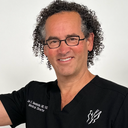I agree with Dr. Franks in his opinion that not all board certified dermatologists are experts in the most recent advances in diagnosis and treatment of hair loss, and that a good place to look is the International Society of Hair Restoration Surgery. It's the most academically-oriented of the many groups and alliances and coalitions of hair restoration doctors, and the one that does not require 5 figure payments annually to stay on their "preferred doctor's list," as so many of these groups operate in this fashion.Moreover, there are so many subtleties in hair restoration surgery that it's important to choose a physician who specializes in the field, not one who has added "hair restoration" to their menu of services along with other cosmetic surgical procedures, and performs a limited number of the procedures per week. Experience counts, just like anything in life, and there are many of us in the USA who specialize exclusively in hair restoration, and treat only patients with thinning hair. It's important to meet personally with your surgeon, and have an in-person evaluation, and a micro-analysis of your scalp to receive the highest level of care possible. A hair restoration is a surgical procedure, but per government regulations, any physician of any background with a valid medical license, regardless of training, presence or lack of any board certificate in anything at all, is permitted to call themselves a "hair restoration surgeon." For instance, a psychiatrist, who has not even seen a surgical instrument in 20 years, can tomorrow decide that he would like to be a hair restoration surgeon, and offer the surgery to the public. Therefore it is important to make sure your surgeon has actual surgery training, which is usually a 5 to 7 year course of intense training in the years immediately following medical school, and upon successful completion, surgeons receive a board certificate in their chosen specialty.








